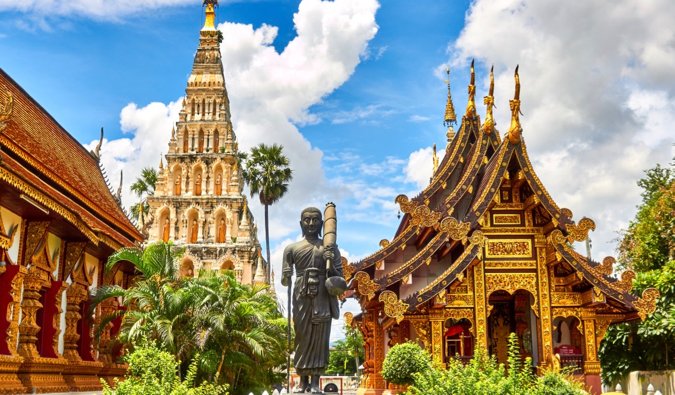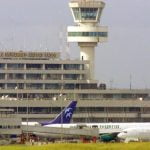Tens of thousands of travellers are expected to arrive in Thailand today as the country reopens to tourists after 18 months of Covid restrictions.
Vaccinated tourists from more than 60 “low-risk” nations are allowed to enter the country and avoid hotel quarantine.
Tourist numbers are forecast to jump to as much as 15 million next year, bringing in more than $30bn (£22bn).
However, much of country still faces restrictions, with only around 42% of the population fully-vaccinated.
Thailand is still registering almost 10,000 Covid infections a day.
“It’s like seeing a very dim light at the end of the tunnel – we haven’t been able to work in two years,” tour guide Chaiyagorn Boonyapak told the BBC. But he and his fellow tour guides haven’t been contacted by customers and tour companies yet and it could take a month until tours are back up and running again.
“We don’t know if [the government] can really open the country smoothly but I hope they can do it. We would very much love to get back to work again.”
The coronavirus pandemic hammered Thailand’s economy, which would previously attract 40m tourists a year. Last year, tourist arrivals were down more than 80%.
Airports serving Bangkok and Phuket are among those opening to countries including UK, China, Japan, the US and most of Europe.
The Thai government predicts revenues to rebound to their pre-pandemic levels by 2023, although many industry experts say China’s ongoing border closures will hamper the sector’s recovery.
Before the pandemic, Chinese tourists made up the biggest number of tourists, with some 12m visitors arriving from China in 2019.
Wiwan Siriwasaeree owns TALES Khaosan, a small hostel in the heart of Bangkok’s famous tourist street Khaosan Road. She isn’t optimistic about the prospect of tourism rebounding to pre-pandemic levels:
“I thought to myself what would I do if the situation in Khoasan doesn’t get back to the way it used to be, I’m quite fearful about that.
“We fear that after we let the tourists in and the new Covid-19 cases spike again, will we go into another lockdown? I’m not so confident about the situation,” she said.
Peeti Kulsirorat, who owns a restaurant in the area, is also fearful that visitors will lead to a spike in cases: “Then the tourism industry will be blamed as the villain again. It will be the scapegoat just like the way drinking alcohol is.”
Mr Kulsirorat said ongoing restrictions – including the inability to sell alcohol in much of the country – will have a negative impact on people’s holidays: “The complete tourism experience has to come in a package of both ambience and convenience.
“If they come here and many things are banned and closed, what’s the point of coming here? It will eventually slow down and people will start to get bored with all the restrictions.”
Meanwhile, on the popular tourist island of Phuket, the pandemic has brought the economy to a standstill.
Dit, whose family owns a sun lounge and juice bar on the island’s Kamala beach said they were making about $150 a day in 2019.
“We had to use our savings, grow vegetables and catch fish to survive,” he said.
Now, after months of closure the juice bar has reopened and is generating about $30 each day: “We don’t expect all the deck chairs to be filled straight away.”





2 Comments